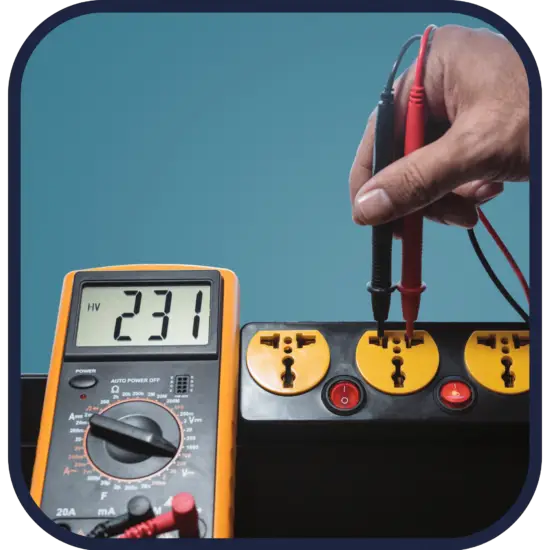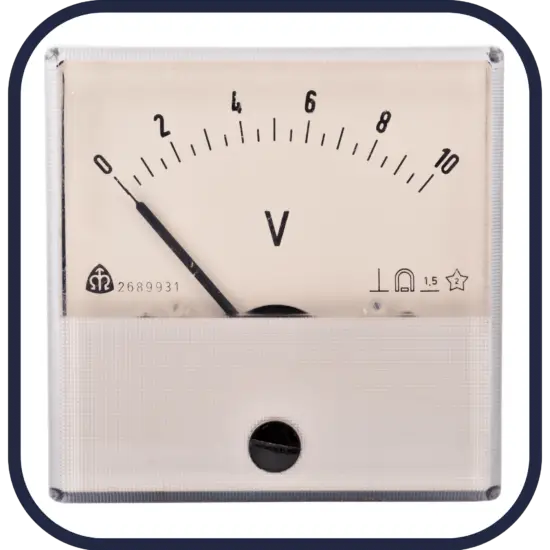30-second summary
Applications of Voltmeter
You can measure the voltage of household circuitry or batteries using a digital multimeter, an analog multimeter, or a voltmeter. Most electricians and novices prefer a digital multimeter, but you can also use an analog multimeter.
The most common types of voltmeters are:


Applications of Voltmeter
You can measure the voltage of household circuitry or batteries using a digital multimeter, an analog multimeter, or a voltmeter. Most electricians and novices prefer a digital multimeter, but you can also use an analog multimeter.
Voltage measurement is important in conjunction with all types of power supplies, to verify their performance. Instruments permanently mounted in a panel are used to monitor generators or other fixed apparatus. A voltmeter may also be used to show the output from various types of analog sensors that have voltage output. A graphical display may be used in audio equipment to indicate signal level, which can be proportional to voltage.
Analog and Digital Voltmeter
Many voltmeters are digital, with numerical displays for readings. The voltmeter instruments also offer analog readings by moving a pointer on a scale to indicate voltage; however, digital voltmeters are generally more accurate than analog instruments. An analog panel meter is shown in the figure. The different scales on the dial correspond with separate input terminals at the rear of the unit. Modern analog voltmeters are still manufactured and may be cheaper than their digital equivalents. Digital voltmeters give a numerical display of voltage by use of an analog-to-digital converter. However, a digital volt meter allows a wider range of values to be viewed more easily.

